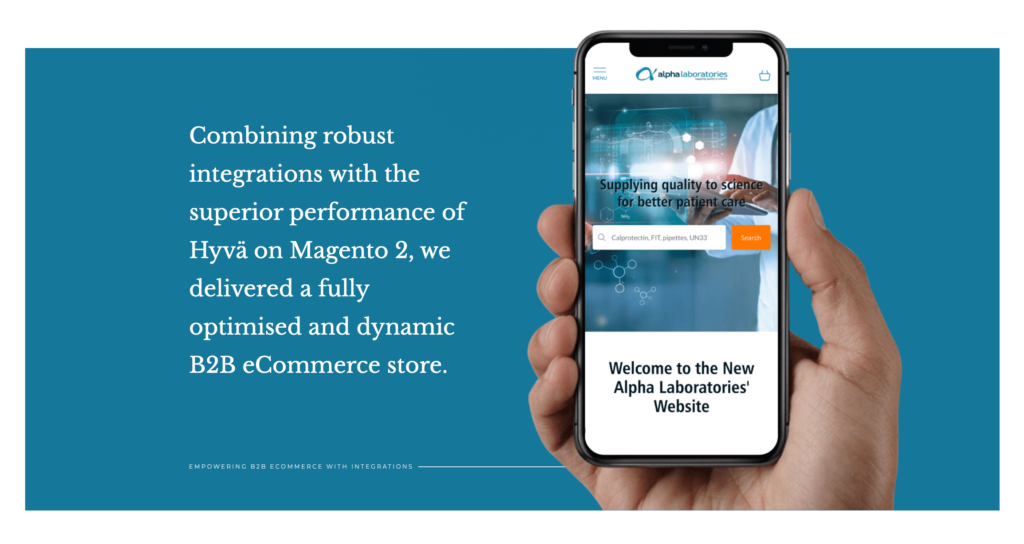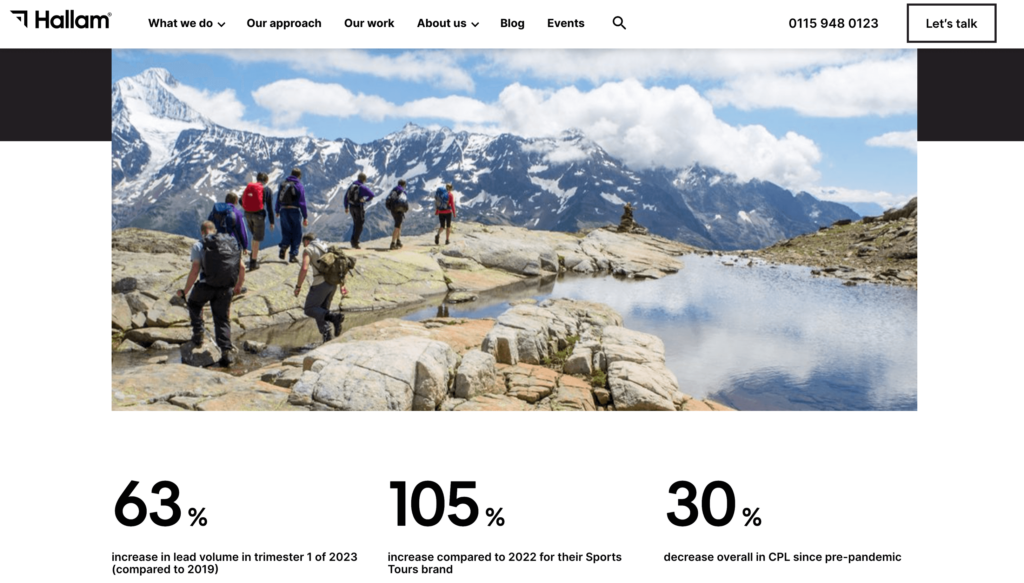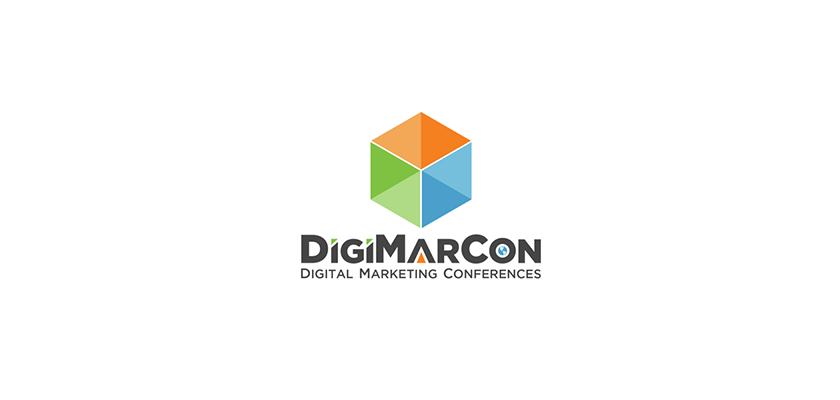
Inspiring B2B eCommerce Strategies and Examples from Agencies
B2B eCommerce is a powerful force in the world of digital commerce. As more businesses shift their purchasing processes online, the need for effective B2B eCommerce strategies has never been greater.
Businesses are changing the way they work and connect. For B2B companies, this means they need to adapt to new ways of buying and selling. Today, the procurement process has become increasingly digital, with businesses seeking the convenience, efficiency, and accessibility that online platforms provide.
B2B eCommerce agencies play a critical role in helping businesses succeed online. They are the guiding force behind the implementation of innovative strategies, ensuring businesses stand out in the digital marketplace.
This article is for those who seek not only the best B2B eCommerce strategies but also the inspiration to push the boundaries of what’s possible. Let’s get started!
Key Elements of Successful B2B eCommerce Strategies
The world of B2B eCommerce is ever evolving. Thus, success hinges on the meticulous formulation and execution of strategic approaches. At the core of a prosperous B2B eCommerce venture lie multifaceted strategies that must be designed to cater to the distinctive dynamics of B2B interactions. These strategies encompass a tapestry of elements, each woven into the fabric of the business model, working harmoniously to achieve a seamless and profitable online presence.
A successful B2B eCommerce strategy begins with a resolute commitment to a customer-centric approach. It is critical in the B2B market to comprehend the complex requirements and preferences of your customers. Such understanding is not merely beneficial but crucial for building enduring customer relationships and fostering brand loyalty. Creating a seamless user experience, where user-friendly interfaces, quick navigation, and intuitive design are essential to ensure that customers can effectively access the products or services that they need, complements this strategy.
Furthermore, the era of data-driven decision making has dawned upon B2B eCommerce. Businesses can gain important insights into consumer behavior, industry trends, and operational efficiency through using data analytics. Businesses can target their marketing efforts accurately, manage resources more wisely, and make well-informed decisions by using data. In the pursuit of an exemplary B2B eCommerce strategy, personalization and customization are not to be overlooked. Tailoring content, product recommendations, and offers to suit the unique needs of individual customers can significantly enhance conversion rates and customer satisfaction.
Moreover, as mobile devices continue to dominate the digital landscape, mobile optimization has become a non-negotiable aspect of B2B eCommerce success. A mobile responsive design that ensures a seamless experience across all devices is now a prerequisite rather than a luxury.
Lastly, it’s critical to establish trust through strong cybersecurity measures as well as transparent communication. Security breaches and data vulnerabilities can have catastrophic consequences for B2B eCommerce businesses. Therefore, trust-building elements should be woven into the fabric of your strategy to cultivate confidence and long-term customer relationships.

Implementing Effective B2B eCommerce Strategies
Crafting an exemplary B2B ecommerce strategy is akin to sketching a blueprint for a grand architectural masterpiece. Yet, as any architect will attest, the real marvel lies in the flawless execution of that vision. Implementation is where B2B marketing agencies truly shine, using their expertise to transform strategy into tangible results.
The journey towards effective implementation begins with meticulous market research and competitive analysis. Gaining a profound understanding of your industry, target audience, and competitors is the foundation upon which a successful strategy is built. Market research illuminates opportunities, identifies gaps, and informs your positioning within the market.
Next comes the critical task of selecting the appropriate technology stack. Your choice of ecommerce platform, hosting infrastructure, and third-party integrations should align seamlessly with your strategic objectives. Scalable, secure, and agile solutions are imperative to ensure the flexibility to adapt to changing circumstances.
When you’re setting up your online store for other businesses to use, it’s super important to think about how they’ll move through your website. It’s kind of like planning a road trip – you want to make sure it’s easy and fun for your customers from the moment they start looking at your products to when they actually buy something. That means all the places they click on, like the starting page and the page where they pay, need to be designed really well to make your customers happy.
Conversion rate optimization is an ongoing pursuit. Agencies employ a multitude of techniques, from A/B testing to usability studies and continuous customer feedback analysis, to fine-tune your website for optimal conversion rates. The constant refinement of the user experience can significantly impact your bottom line.
Another thing to think about is how many people who visit your website actually end up buying something. You want to make that number as big as possible. So, eCommerce marketing agencies use different tricks to test what works best, like trying out different website layouts or asking customers for their thoughts. It’s like fine-tuning a musical instrument to make it sound just right.
The thorough process of measurement and analytics supports all of these efforts. Implementing robust analytics tools allows for the real-time tracking of performance metrics. Regularly analyzing the data collected can provide the insights necessary to refine and adapt your strategy, ensuring it remains aligned with your evolving goals.
To sum up, it is essential that your plan be future-proofed for the continually shifting digital environment. A successful B2B e-commerce strategy must take growth into consideration and be adaptable enough to evolve with the times as both the market and technology advance. Success in the digital space is characterized by flexibility and development, which sets innovative agencies apart from their competitors.

B2B Digital Marketing Strategy for eCommerce
After going over the fundamentals of B2B ecommerce strategies, let’s take a closer look at the ever-evolving world of B2B digital marketing strategies that are meant to enhance and complement the ecommerce experience.
For B2B ecommerce projects, digital marketing serves as an engine for increasing visibility, engagement, and eventually conversions.
Integrating Digital Marketing into B2B Ecommerce
B2B advertising is no longer confined to traditional channels. You need to integrate digital marketing seamlessly into your B2B eCommerce strategy to create a game-changing effect. In today’s digital world, perhaps the first thing to understand is the crucial role that digital marketing plays at every stage of the customer journey. As we all know, digital marketing agencies excel in crafting comprehensive strategies that leverage various digital channels and tactics to amplify brand presence. An important example for this is the social media platforms, of course. All these platforms offer tremendous opportunities for brand awareness, engagement, and even lead generation. When social platforms like Linkedin are used strategically, agencies can position your brand as an authoritative voice in your niche.
Content Marketing Tactics for B2B Ecommerce
Content is the currency of the digital world, and in B2B ecommerce, it holds immense value. Agencies understand the art of creating informative and compelling content that resonates with B2B buyers. This content serves not only to educate but also to establish your brand as a trusted industry resource.
From informative product descriptions to in-depth blog posts and whitepapers, digital agencies develop a content strategy that caters to the specific needs of your audience. Thought leadership pieces, case studies, and success stories highlight your brand’s expertise and real-world impact.
SEO and SEM Strategies for B2B Ecommerce
Visibility, visibility, visibility. All the efforts mean nothing when your brand isn’t visible to your audience. Thus, agencies employ SEO and SEM strategies to ensure that their clients’ ecommerce websites rank prominently in search engine results.
Effective SEO involves optimizing product listings and web content to align with the keywords and phrases your target audience is using. Agencies dive deep into keyword research and implement on-page and off-page SEO tactics, ensuring your brand appears when potential customers search for relevant solutions.
SEM, on the other hand, leverages paid advertising to achieve immediate visibility. Agencies create targeted PPC (Pay-Per-Click) campaigns that place your products or services in front of potential buyers. The precision of SEM allows you to reach a highly relevant audience, making it a valuable component of your overall digital marketing strategies.
As we explore further into the strategies and examples of B2B ecommerce in the sections ahead, keep in mind that these digital marketing tactics are the threads that weave your brand into the fabric of the online marketplace. They are the tools agencies use to ensure your B2B ecommerce venture thrives and excels in a competitive digital landscape.
Email Marketing for B2B Ecommerce
Email marketing remains an indispensable pillar of eCommerce digital marketing strategy, offering a direct and personalized means of communication with your audience. Agencies employ a multifaceted approach to harness the full potential of email marketing, effectively nurturing leads and retaining loyal customers.
Personalized Email Campaigns: One-size-fits-all email blasts are no longer effective. Digital marketing agencies craft personalized email campaigns tailored to the specific needs and interests of different segments within your target audience. By delivering content and offers that resonate with individual recipients, agencies increase open rates, click-through rates, and conversion rates.
Abandoned Cart Recovery Emails: Cart abandonment is a common challenge in eCommerce. Agencies implement automated abandoned cart recovery email sequences to re-engage potential customers who left items in their carts without completing the purchase. These emails remind users of their abandoned items, offer incentives, and simplify the checkout process to recapture lost sales.
Newsletter Campaigns for Updates: It’s crucial to keep your audience interested and informed. Newsletter campaigns offer exclusive deals, industry news, product updates, and insightful material. By supplying relevant data on a regular basis, companies maintain their customers’ and prospects’ attention.
Segmentation for Targeted Outreach: Effective email marketing hinges on segmentation. Agencies divide your email list into distinct segments based on factors such as demographics, behavior, and purchase history. This allows for highly targeted email campaigns that speak directly to the needs and interests of each group. Segmentation not only improves engagement but also drives higher conversion rates.
The power of email marketing in B2B ecommerce lies not only in its ability to drive immediate sales but also in its capacity to nurture long-term customer relationships. Digital marketing agencies leverage this tool to keep your brand at the forefront of your customers’ minds, foster loyalty, and encourage repeat business.
Inspiring Case Studies by B2B eCommerce Agencies
Below we’ve listed inspiring B2B eCommerce strategy examples by digital marketing agencies:
1. Media Lounge x Alpha Labs Case Study

In the B2B eCommerce realm, Alpha Laboratories soared to new heights by teaming up with Media Lounge for a digital makeover. Their old Magento 1 store morphed into a sleek Magento 2 store, offering a personalized digital journey for B2B clientele. With Microsoft Dynamics 365 CRM integration, managing databases and customer relations became a breeze.
The cherry on top? A “Quick Buy” feature for rapid repeat purchases, making their platform not just a store, but a fast-track to customer satisfaction. This partnership didn’t just meet the present needs but geared Alpha Labs for future market demands, a true digital evolution.
2. Hallam x Rayburn Tours Case Study

When the travel industry hit rock bottom in 2020, Rayburn Tours faced a tidal wave of challenges. With their robust service offerings in educational and adventurous group tours at a halt, they needed a lifeline. Enter Hallam, their decade-long digital marketing partner. As 2021 dawned with a glimmer of recovery, Hallam’s Paid Media team swung into action. They restructured Rayburn’s Google Ad account, embraced the Hagakure methodology, and laser-focused on four core business areas. This strategic pivot, despite a marginal budget uptick, fueled a 63% conversion volume surge in 2023, rekindling Rayburn’s market presence and reinforcing the indomitable spirit of their B2B eCommerce strategy amidst a post-pandemic world.
3. Brand Vision Marketing x Titan Flooring Case Study

Brand Vision Marketing embarked on a digital voyage with Titan Flooring, aiming to carve a strong online representation for the brand in the flooring industry. The project spotlight was on designing and developing a WordPress website that mirrors the robust quality of Tian Flooring’s products and services. The journey from conceptualization to realization took a span of six weeks, with meticulous steps including site goals review, user persona creation, sitemap formulation, and seamless execution of UX and UI design. The final product was a visually captivating website that not only showcased Titan Flooring’s offerings and past projects but also enhanced user experience leading to an uptick in lead generation and conversion rates. This digital transformation also bestowed upon Titan Flooring a timeless online platform, poised to evolve alongside the brand, reinforcing its industry standing and competitive edge.
Conclusion
Adaptability is king in the world of B2B eCommerce. Businesses and digital agencies team up to navigate the ever-changing seas. They use smart strategies and real-world examples that focus on customers and data to make their brands more visible and engaging.
As the story of B2B eCommerce keeps going, the expertise of digital agencies and the determination of businesses to embrace change light the way to new and successful adventures. It’s all about being flexible and ready for what’s next.




















